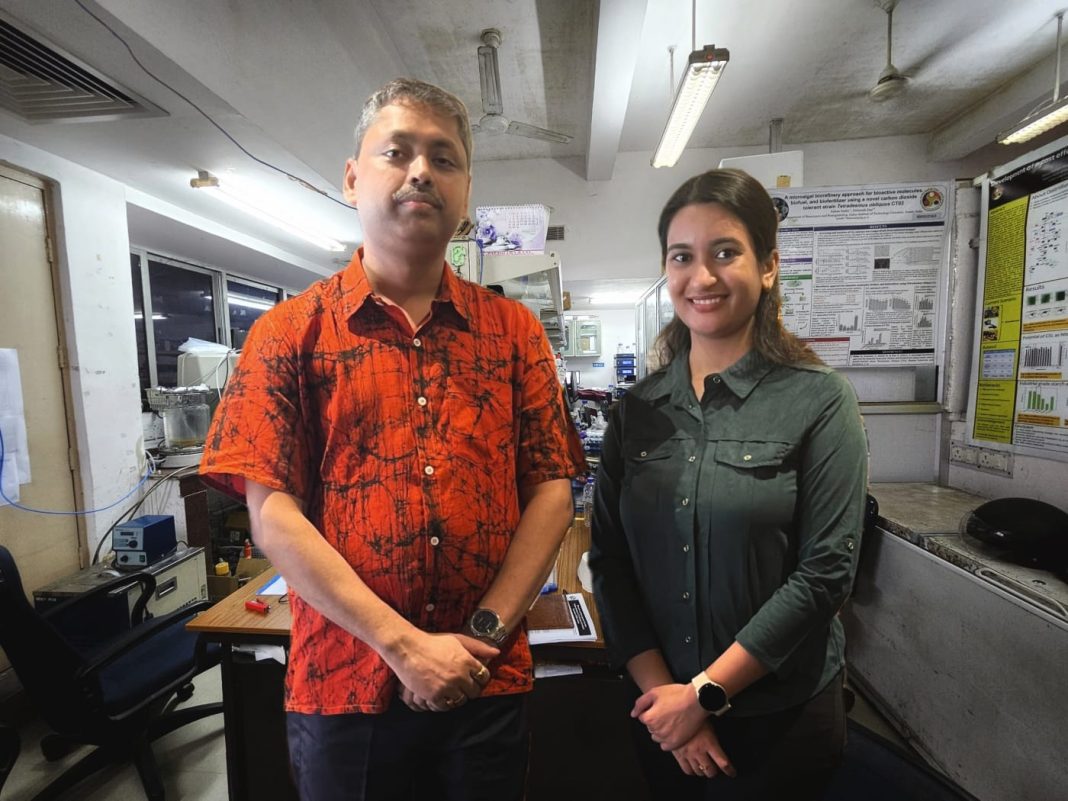Guwahati, Dec 9: Researchers at the Indian Institute of Technology (IIT) Guwahati have developed a biological method to turn greenhouse gases into cleaner biofuels.
This breakthrough offers a cleaner, more sustainable approach to energy production, tackling two critical global challenges: climate change and reliance on fossil fuels.
They have converted methane and carbon dioxide into bio-methanol using methanotrophic bacteria.
The research, led by Prof. Debasish Das and Dr. Krishna Kalyani Sahoo from the Department of Biosciences and Bioengineering, has been published in Fuel, a leading journal by Elsevier. The team’s work addresses the urgent need to mitigate the environmental impact of greenhouse gases and explore sustainable alternatives to fossil fuels.
Methane, a greenhouse gas 27-30 times more potent than carbon dioxide, is a major contributor to global warming. While converting methane and CO₂ into liquid biofuels could cut emissions and generate renewable energy, existing chemical methods are energy-intensive, costly, and generate toxic by-products. The IIT Guwahati researchers’ method circumvents these issues with a fully biological process.
At the heart of this method is Methylosinus trichosporium, a type of methanotrophic bacteria capable of converting methane and CO₂ into bio-methanol under mild, energy-efficient conditions. Unlike traditional chemical methods, the process requires no expensive catalysts, avoids toxic by-products, and operates with higher energy efficiency.
The innovative two-stage process involves methane capture by generating bacterial biomass from methane and CO₂ conversion by using the biomass to convert CO₂ into bio-methanol. The team to enhance methanol production employed advanced engineering techniques to improve gas solubility, significantly boosting yields.
The team tested bio-methanol blends (5-20%) with diesel in a four-stroke diesel engine, yielding impressive results:
There was an 87% reduction in carbon monoxide, hydrocarbons, hydrogen sulphide, and smoke emissions. As regards fuel efficiency, Diesel-methanol blends outperformed pure diesel in energy efficiency, fuel consumption, and engine performance, while maintaining similar mechanical efficiency.
“This research is a breakthrough as it demonstrates that bio-methanol, derived from bacteria feeding on methane and carbon dioxide, can be a viable alternative to fossil fuels,” said Prof. Debasish Das. “Unlike conventional biofuels that rely on crops and create competition with food production, our method uses greenhouse gases, avoiding the ‘food vs. fuel’ issue. It is an environmentally and economically viable solution, utilising inexpensive resources while contributing to emissions reduction.”
With the potential for large-scale industrial adoption, IIT Guwahati’s breakthrough could reshape how the world approaches sustainable energy, offering a viable alternative to conventional fossil fuels.




